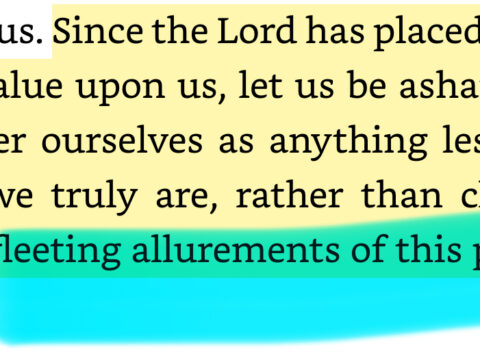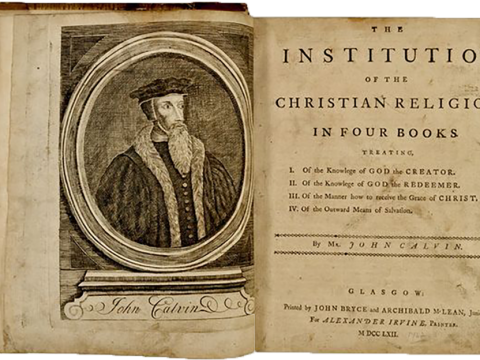
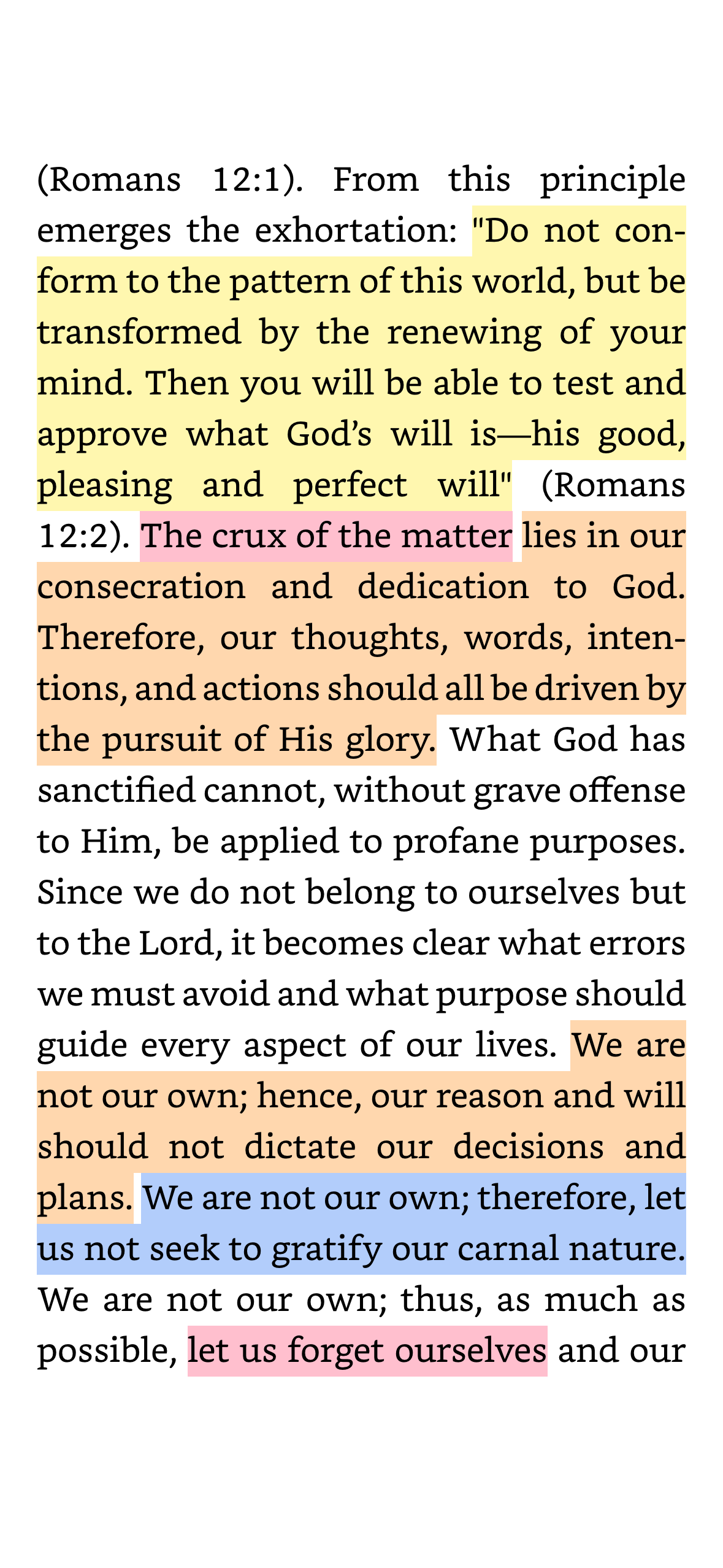
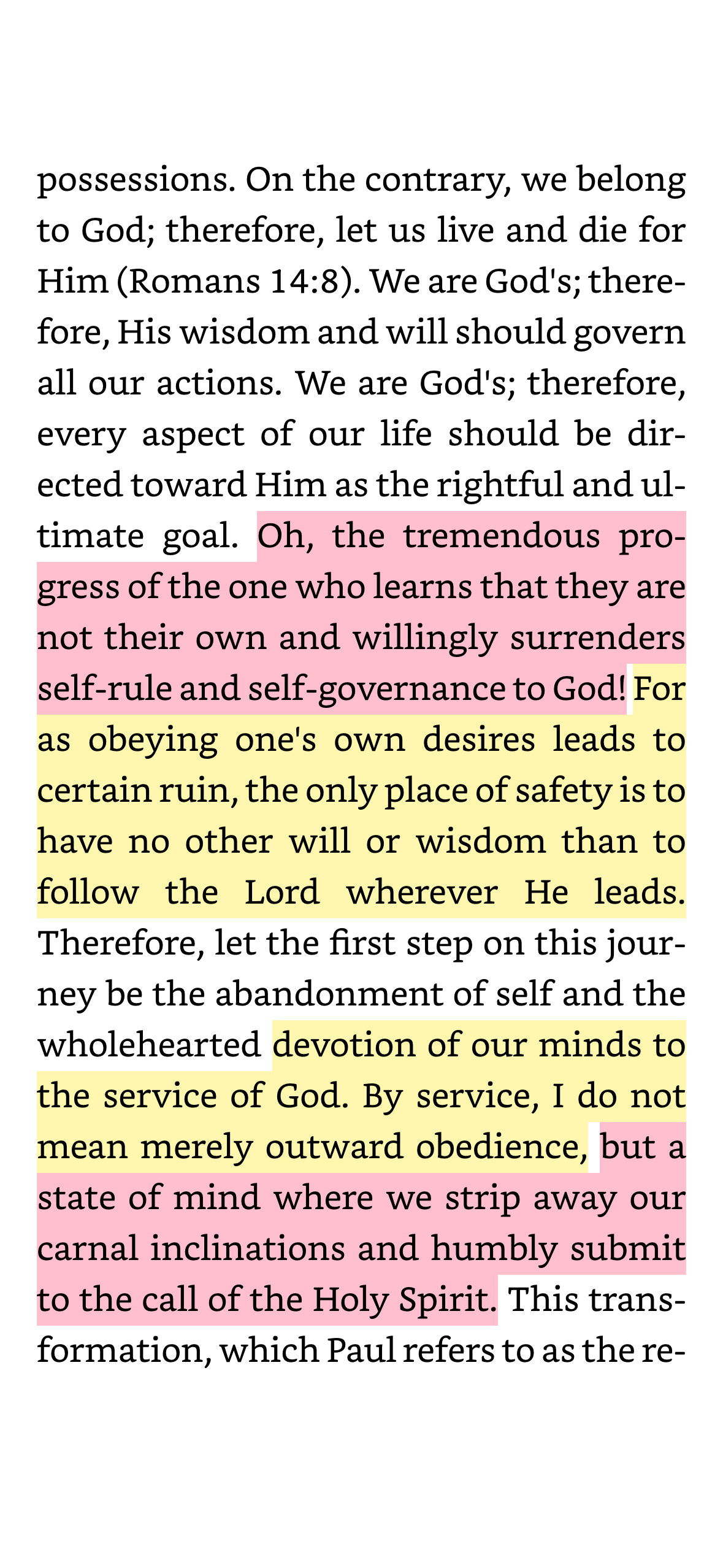
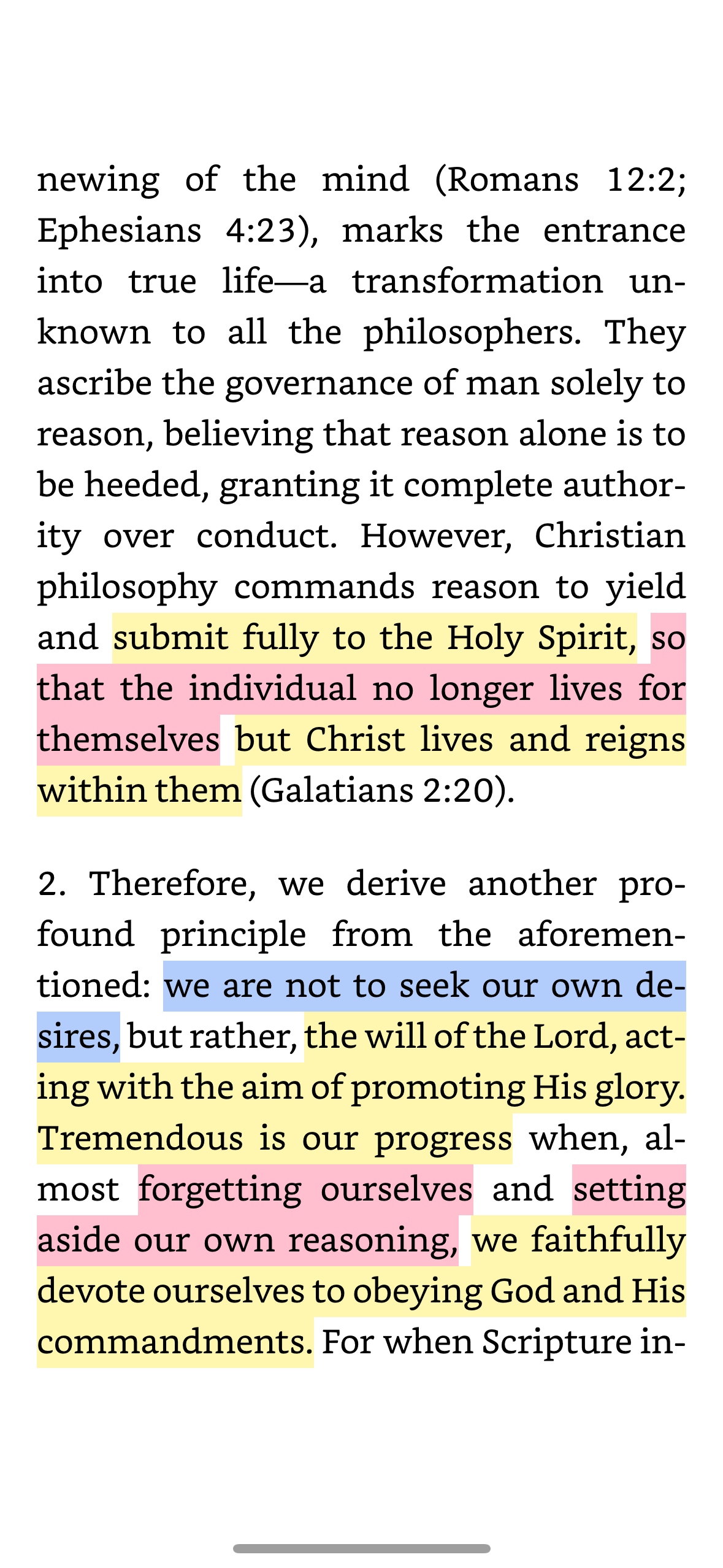
“Do not conform to the pattern of this world, but be transformed by the renewing of your mind. Then you will be able to test and approve what God’s will is—his good, pleasing and perfect will” (Romans 12: 2). The crux of the matter lies in our consecration and dedication to God. Therefore, our thoughts, words, intentions, and actions should all be driven by the pursuit of His glory. What God has sanctified cannot, without grave offense to Him, be applied to profane purposes. Since we do not belong to ourselves but to the Lord, it becomes clear what errors we must avoid and what purpose should guide every aspect of our lives. We are not our own; hence, our reason and will should not dictate our decisions and plans. We are not our own; therefore, let us not seek to gratify our carnal nature. We are not our own; thus, as much as possible, let us forget ourselves and our possessions. On the contrary, we belong to God; therefore, let us live and die for Him (Romans 14: 8). We are God’s; therefore, His wisdom and will should govern all our actions. We are God’s; therefore, every aspect of our life should be directed toward Him as the rightful and ultimate goal. Oh, the tremendous progress of the one who learns that they are not their own and willingly surrenders self-rule and self-governance to God! For as obeying one’s own desires leads to certain ruin, the only place of safety is to have no other will or wisdom than to follow the Lord wherever He leads. Therefore, let the first step on this journey be the abandonment of self and the wholehearted devotion of our minds to the service of God. By service, I do not mean merely outward obedience, but a state of mind where we strip away our carnal inclinations and humbly submit to the call of the Holy Spirit. This transformation, which Paul refers to as the renewing of the mind (Romans 12: 2; Ephesians 4: 23), marks the entrance into true life—a transformation unknown to all the philosophers. They ascribe the governance of man solely to reason, believing that reason alone is to be heeded, granting it complete authority over conduct. However, Christian philosophy commands reason to yield and submit fully to the Holy Spirit, so that the individual no longer lives for themselves but Christ lives and reigns within them (Galatians 2: 20).
Therefore, we derive another profound principle from the aforementioned: we are not to seek our own desires, but rather, the will of the Lord, acting with the aim of promoting His glory. Tremendous is our progress when, almost forgetting ourselves and setting aside our own reasoning, we faithfully devote ourselves to obeying God and His commandments. For when Scripture instructs us to cast aside self-centeredness, it not only frees our minds from excessive yearnings for wealth, power, or human favor but also uproots all ambition and thirst for worldly recognition, along with other hidden perils. The Christian, indeed, ought to be so trained and inclined as to recognize that their entire life is in constant connection with God. Therefore, just as they bring all things under God’s authority and assessment, they will devoutly direct their entire minds toward Him. For the one who has learned to look to God in everything they do is simultaneously shielded from all empty thoughts. This is the essence of self-denial that Christ powerfully instills in His disciples from the very beginning (Matthew 16: 24). Once it takes hold of the mind, there is no room left for pride, pretense, or ostentation. Nor does it provide any space for avarice, lust, luxury, effeminacy, or other vices that are nurtured by self-love. On the contrary, where self-denial reigns not, the most loathsome vices are indulged in shamelessly. And even if there is some semblance of virtue, it is corrupted by a depraved longing for applause.
John Calvin. On the Christian Life.
